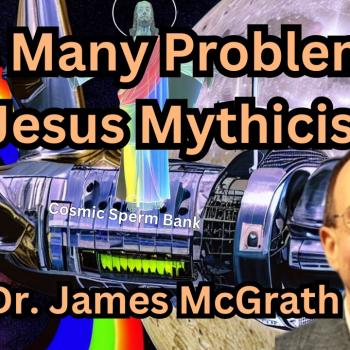The Bible and Interpretation has published a response I wrote to Raphael Lataster’s article that recently appeared there. His article is called “Questioning Jesus’ Historicity” and my response is called “Exorcising Mythicism’s Sky Demons.” Here is an excerpt from towards the end of the article:
In case it may not be as clear to members of the general public as it is to academics, the mere publication of a book that makes the case for a particular viewpoint in no way suggests that that viewpoint should or will be found persuasive by academics, never mind adopted by the general public. Anyone who reads widely in scholarship in any field will know that academics as a matter of course try out new ideas, float new hypotheses, and explore unconventional approaches to well-worn subjects. This is what we are required to do as part of our jobs. We must “publish or perish” and the only way to get something published is to try to say something new. Most of the new ideas that are proposed will not stand the test of time, nor do they deserve to. Scholarship depends on this constant back-and-forth between innovative proposals and their critical evaluation by other academics. It is because of my great appreciation for the way academic research proceeds that I find mythicism (at least in its present-day form) such a huge disappointment. Every academic knows just how intellectually invigorating (and at times downright delightful) it can be to read a work that argues an unconventional case, especially ones that provide such creative insights and attention to detail that you find yourself thinking time and again as you read it that you might just be persuaded by its argument. Even if you aren’t persuaded in the end, the intellectual exploration that reading such a work fosters is beneficial in its own right. Unfortunately, Lataster offers none of that, as I have hopefully illustrated here. I wish he did, because reading an unconvincing but well-argued case for the non-historicity of Jesus would surely be an enthralling and beneficial experience, even if it didn’t persuade me to change my mind. Mythicism in general, and Lataster’s article more specifically, offers nothing remotely like that.
Please do read the whole thing if you are interested in mythicism and the historical Jesus, or in other similar phenomena. And then, whether here or there, please do let me know your thoughts about it. His article is connected to a book he has coming out soon, Questioning the Historicity of Jesus. I will review that book in the not too distant future.














